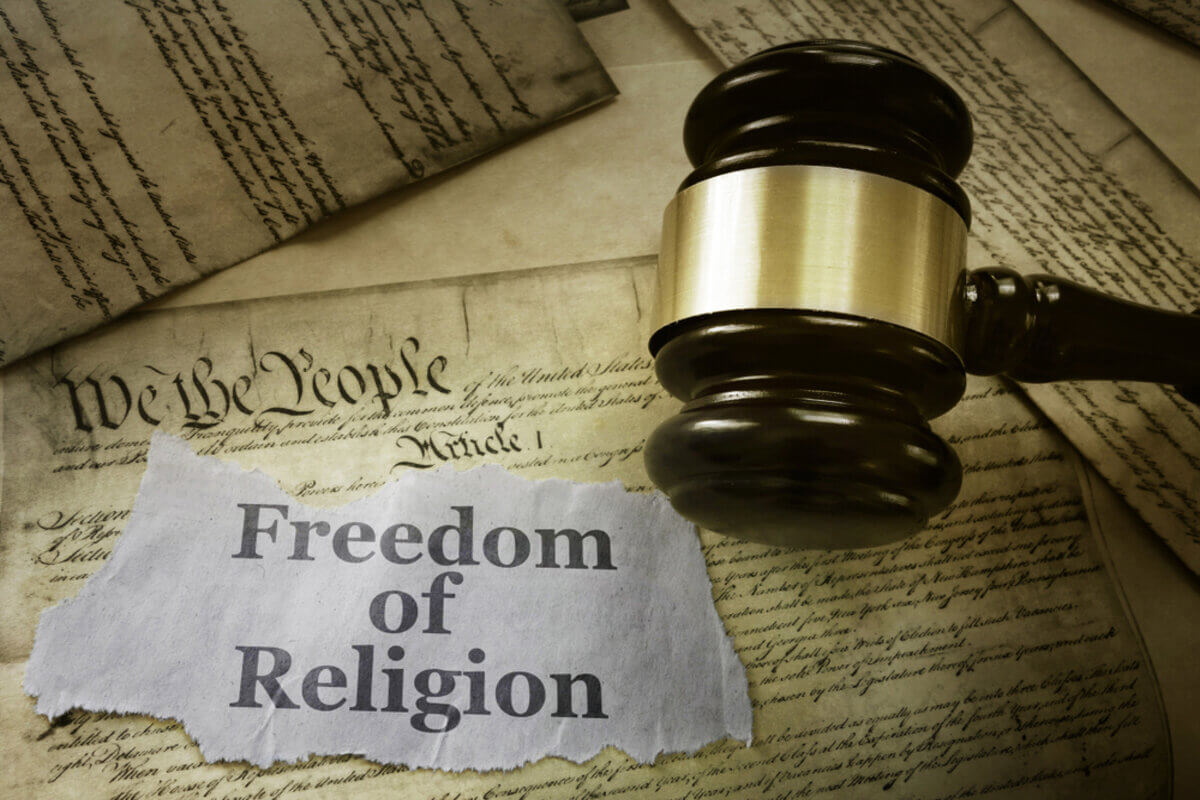Someone’s faith is a core part of their identity. No one should have to choose between living out their religious beliefs and staying employed. Unfortunately, many employers ask their employees to do just that. However, there are federal religious accommodations laws that protect the right of employees to practice their religion, and a recent Supreme Court ruling has strengthened those laws.
What Is Religious Accommodation?i
Federal law requires employers to accommodate sincerely held religious practices of their employees so that workers do not have to set aside their faith to keep their jobs. Flexible scheduling, allowing shift swaps with a co-worker for religious observance, job reassignment, and changing workplace rules or policies are all examples of religious accommodations. Employers are generally required by law to provide accommodations like these if requested by an employee for religious reasons. However, employers are not required to provide an accommodation if it would cause an unreasonable difficulty for the company—what courts refer to as an “undue hardship.”
How Do Employers Show “Undue Hardship”?
Traditionally, to show that providing an accommodation would cause undue hardship, an employer only has to show anything more than a minimal cost to the company. This rule is called the “de minimis cost standard.” If accommodating an employee’s prayer schedule, for example, would disrupt the place of business, inconvenience coworkers, affect employee morale, or somehow cost the business money, then the employer would not be required to accommodate that employee because doing so would cause undue hardship under the de minimis cost standard. Unfortunately, some employers abuse this standard to avoid accommodating most all religious practices of their workers.
How Has the Law Around Religious Accommodations Changed Recently?
In 2023, the Supreme Court of the United States significantly changed the law to better protect workers’ rights to practice their religion without fear of negative employment consequences like termination or retaliation. In Groff v. DeJoy, Gerald Groff, a mail carrier working for the United States Postal Service, requested to not work on Sundays, citing his Christian faith and his related belief that Sunday was a Sabbath day to be set aside for true rest and prayerful reflection – not work. The USPS station where Groff worked, however, had just entered into an agreement with Amazon that included Sunday deliveries. Because Groff wouldn’t work on Sundays, USPS disciplined Groff in various ways until he felt forced to resign.
Allowing Groff to refrain from work on Sundays unquestionably imposed more than a minimal cost on the USPS station where he was employed, so the USPS argued that it had shown an undue hardship and shouldn’t be required to accommodate Groff’s request. However, the Supreme Court said that the minimal cost rule is not the right rule to use when evaluating religious accommodations in the workplace. Instead, the Supreme Court ruled that to deny a religious accommodation because of undue hardship, an employer has to show that accommodating the employee’s religion would “result in substantial increased costs in relation to the conduct of its particular business.” Using this higher standard, the Supreme Court held that the USPS may be required to accommodate Mr. Groff’s request not to work on Sundays.
What Does the Supreme Court’s Ruling in Groff v. DeJoy Mean for Workers?
Simply put, it has always been wrong and illegal for employers to discriminate against workers because of their religion or to deny employees religious accommodations that do not pose an undue hardship. Many employers, however, were able to avoid accommodating employees by saying that doing so would be too difficult. The Supreme Court’s new ruling makes it harder for employers to get out of accommodating employees’ religious practices. Now, workers of all faiths are more likely to receive accommodations from their employers.
In Summary

Even with changes in the law, many employees still face religious discrimination in the workplace or are refused religious accommodations by their employers. MSB Employment Justice is proud to advocate for the rights of all employees, regardless of religion, age, gender, race or ethnicity, who experience discrimination, retaliation, or wrongful termination. If you are experiencing ongoing discrimination at work or have been denied accommodation and do not know where to turn, we would like to hear from you. Contact MSB Employment Justice today to speak with our legal team.



